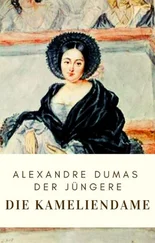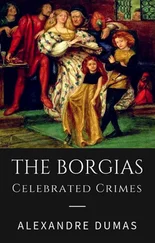Alexandre Dumas - Celebrated Crimes (Complete)
Здесь есть возможность читать онлайн «Alexandre Dumas - Celebrated Crimes (Complete)» — ознакомительный отрывок электронной книги совершенно бесплатно, а после прочтения отрывка купить полную версию. В некоторых случаях можно слушать аудио, скачать через торрент в формате fb2 и присутствует краткое содержание. Жанр: literature_19, foreign_antique, foreign_prose, на английском языке. Описание произведения, (предисловие) а так же отзывы посетителей доступны на портале библиотеки ЛибКат.
- Название:Celebrated Crimes (Complete)
- Автор:
- Жанр:
- Год:неизвестен
- ISBN:нет данных
- Рейтинг книги:3 / 5. Голосов: 1
-
Избранное:Добавить в избранное
- Отзывы:
-
Ваша оценка:
- 60
- 1
- 2
- 3
- 4
- 5
Celebrated Crimes (Complete): краткое содержание, описание и аннотация
Предлагаем к чтению аннотацию, описание, краткое содержание или предисловие (зависит от того, что написал сам автор книги «Celebrated Crimes (Complete)»). Если вы не нашли необходимую информацию о книге — напишите в комментариях, мы постараемся отыскать её.
Celebrated Crimes (Complete) — читать онлайн ознакомительный отрывок
Ниже представлен текст книги, разбитый по страницам. Система сохранения места последней прочитанной страницы, позволяет с удобством читать онлайн бесплатно книгу «Celebrated Crimes (Complete)», без необходимости каждый раз заново искать на чём Вы остановились. Поставьте закладку, и сможете в любой момент перейти на страницу, на которой закончили чтение.
Интервал:
Закладка:
The young man remained awhile stupefied at this discourse, so utterly unexpected, so utterly destructive at one fell blow to his most cherished hopes. He rose giddy and staggering like a drunken man, and at once leaving the Vatican, hurried to his mother, whom he had forgotten before, but sought now in his despair. Rosa Vanozza possessed all the vices and all the virtues of a Spanish courtesan; her devotion to the Virgin amounted to superstition, her fondness for her children to weakness, and her love for Roderigo to sensuality. In the depth of her heart she relied on the influence she had been able to exercise over him for nearly thirty years; and like a snake, she knew haw to envelop him in her coils when the fascination of her glance had lost its power. Rosa knew of old the profound hypocrisy of her lover, and thus she was in no difficulty about reassuring Caesar.
Lucrezia was with her mother when Caesar arrived; the two young people exchanged a lover-like kiss beneath her very eyes: and before he left Caesar had made an appointment for the same evening with Lucrezia, who was now living apart from her husband, to whom Roderigo paid a pension in her palace of the Via del Pelegrino, opposite the Campo dei Fiori, and there enjoying perfect liberty.
In the evening, at the hour fixed, Caesar appeared at Lucrezia's; but he found there his brother Francesco. The two young men had never been friends. Still, as their tastes were very different, hatred with Francesco was only the fear of the deer for the hunter; but with Caesar it was the desire for vengeance and that lust for blood which lurks perpetually in the heart of a tiger. The two brothers none the less embraced, one from general kindly feeling, the other from hypocrisy; but at first sight of one another the sentiment of a double rivalry, first in their father's and then in their sister's good graces, had sent the blood mantling to the cheek of Francesco, and called a deadly pallor into Caesar's. So the two young men sat on, each resolved not to be the first to leave, when all at once there was a knock at the door, and a rival was announced before whom both of them were bound to give way: it was their father.
Rosa Vanazza was quite right in comforting Caesar. Indeed, although Alexander VI had repudiated the abuses of nepotism, he understood very well the part that was to be played for his benefit by his sons and his daughter; for he knew he could always count on Lucrezia and Caesar, if not on Francesco and Goffredo. In these matters the sister was quite worthy of her brother. Lucrezia was wanton in imagination, godless by nature, ambitious and designing: she had a craving for pleasure, admiration, honours, money, jewels, gorgeous stuffs, and magnificent mansions. A true Spaniard beneath her golden tresses, a courtesan beneath her frank looks, she carried the head of a Raphael Madonna, and concealed the heart of a Messalina. She was dear to Roderigo both as daughter and as mistress, and he saw himself reflected in her as in a magic mirror, every passion and every vice. Lucrezia and Caesar were accordingly the best beloved of his heart, and the three composed that diabolical trio which for eleven years occupied the pontifical throne, like a mocking parody of the heavenly Trinity.
Nothing occurred at first to give the lie to Alexander's professions of principle in the discourse he addressed to Caesar, and the first year of his pontificate exceeded all the hopes of Rome at the time of his election. He arranged for the provision of stores in the public granaries with such liberality, that within the memory of man there had never been such astonishing abundance; and with a view to extending the general prosperity to the lowest class, he organised numerous doles to be paid out of his private fortune, which made it possible for the very poor to participate in the general banquet from which they had been excluded for long enough. The safety of the city was secured, from the very first days of his accession, by the establishment of a strong and vigilant police force, and a tribunal consisting of four magistrates of irreproachable character, empowered to prosecute all nocturnal crimes, which during the last pontificate had been so common that their very numbers made impunity certain: these judges from the first showed a severity which neither the rank nor the purse of the culprit could modify. This presented such a great contrast to the corruption of the last reign, – in the course of which the vice-chamberlain one day remarked in public, when certain people were complaining of the venality of justice, "God wills not that a sinner die, but that he live and pay," – that the capital of the Christian world felt for one brief moment restored to the happy days of the papacy. So, at the end of a year, Alexander VI had reconquered that spiritual credit, so to speak, which his predecessors lost. His political credit was still to be established, if he was to carry out the first part of his gigantic scheme. To arrive at this, he must employ two agencies – alliances and conquests. His plan was to begin with alliances. The gentleman of Aragon who had married Lucrezia when she was only the daughter of Cardinal Roderigo Borgia was not a man powerful enough, either by birth and fortune or by intellect, to enter with any sort of effect into the plots and plans of Alexander VI; the separation was therefore changed into a divorce, and Lucrezia Borgia was now free to remarry. Alexander opened up two negotiations at the same time: he needed an ally to keep a watch on the policy of the neighbouring States. John Sforza, grandson of Alexander Sforza, brother of the great Francis I, Duke of Milan, was lord of Pesaro; the geographical situation of this place, an the coast, on the way between Florence and Venice, was wonderfully convenient for his purpose; so Alexander first cast an eye upon him, and as the interest of both parties was evidently the same, it came about that John Sforza was very soon Lucrezia's second husband.
At the same time overtures had been made to Alfonso of Aragon, heir presumptive to the crown of Naples, to arrange a marriage between Dana Sancia, his illegitimate daughter, and Goffreda, the pope's third son; but as the old Ferdinand wanted to make the best bargain he could out of it; he dragged on the negotiations as long as possible, urging that the two children were not of marriageable age, and so, highly honoured as he felt in such a prospective alliance, there was no hurry about the engagement. Matters stopped at this point, to the great annoyance of Alexander VI, who saw through this excuse, and understood that the postponement was nothing more or less than a refusal. Accordingly Alexander and Ferdinand remained in statu quo, equals in the political game, both on the watch till events should declare for one or other. The turn of fortune was for Alexander.
Italy, though tranquil, was instinctively conscious that her calm was nothing but the lull which goes before a storm. She was too rich and too happy to escape the envy of other nations. As yet the plains of Pisa had not been reduced to marsh-lands by the combined negligence and jealousy of the Florentine Republic, neither had the rich country that lay around Rome been converted into a barren desert by the wars of the Colonna and Orsini families; not yet had the Marquis of Marignan razed to the ground a hundred and twenty villages in the republic of Siena alone; and though the Maremma was unhealthy, it was not yet a poisonous marsh: it is a fact that Flavio Blando, writing in 1450, describes Ostia as being merely less flourishing than in the days of the Romans, when she had numbered 50,000 inhabitants, whereas now in our own day there are barely 30 in all.
The Italian peasants were perhaps the most blest on the face of the earth: instead of living scattered about the country in solitary fashion, they lived in villages that were enclosed by walls as a protection for their harvests, animals, and farm implements; their houses – at any rate those that yet stand – prove that they lived in much more comfortable and beautiful surroundings than the ordinary townsman of our day. Further, there was a community of interests, and many people collected together in the fortified villages, with the result that little by little they attained to an importance never acquired by the boorish French peasants or the German serfs; they bore arms, they had a common treasury, they elected their own magistrates, and whenever they went out to fight, it was to save their common country.
Читать дальшеИнтервал:
Закладка:
Похожие книги на «Celebrated Crimes (Complete)»
Представляем Вашему вниманию похожие книги на «Celebrated Crimes (Complete)» списком для выбора. Мы отобрали схожую по названию и смыслу литературу в надежде предоставить читателям больше вариантов отыскать новые, интересные, ещё непрочитанные произведения.
Обсуждение, отзывы о книге «Celebrated Crimes (Complete)» и просто собственные мнения читателей. Оставьте ваши комментарии, напишите, что Вы думаете о произведении, его смысле или главных героях. Укажите что конкретно понравилось, а что нет, и почему Вы так считаете.












